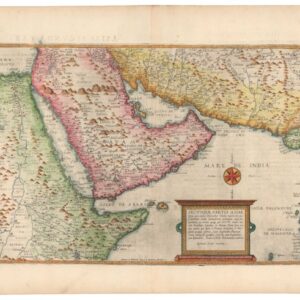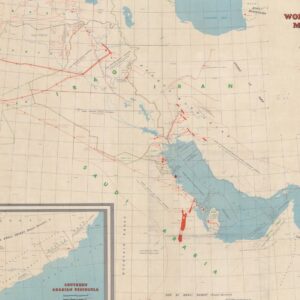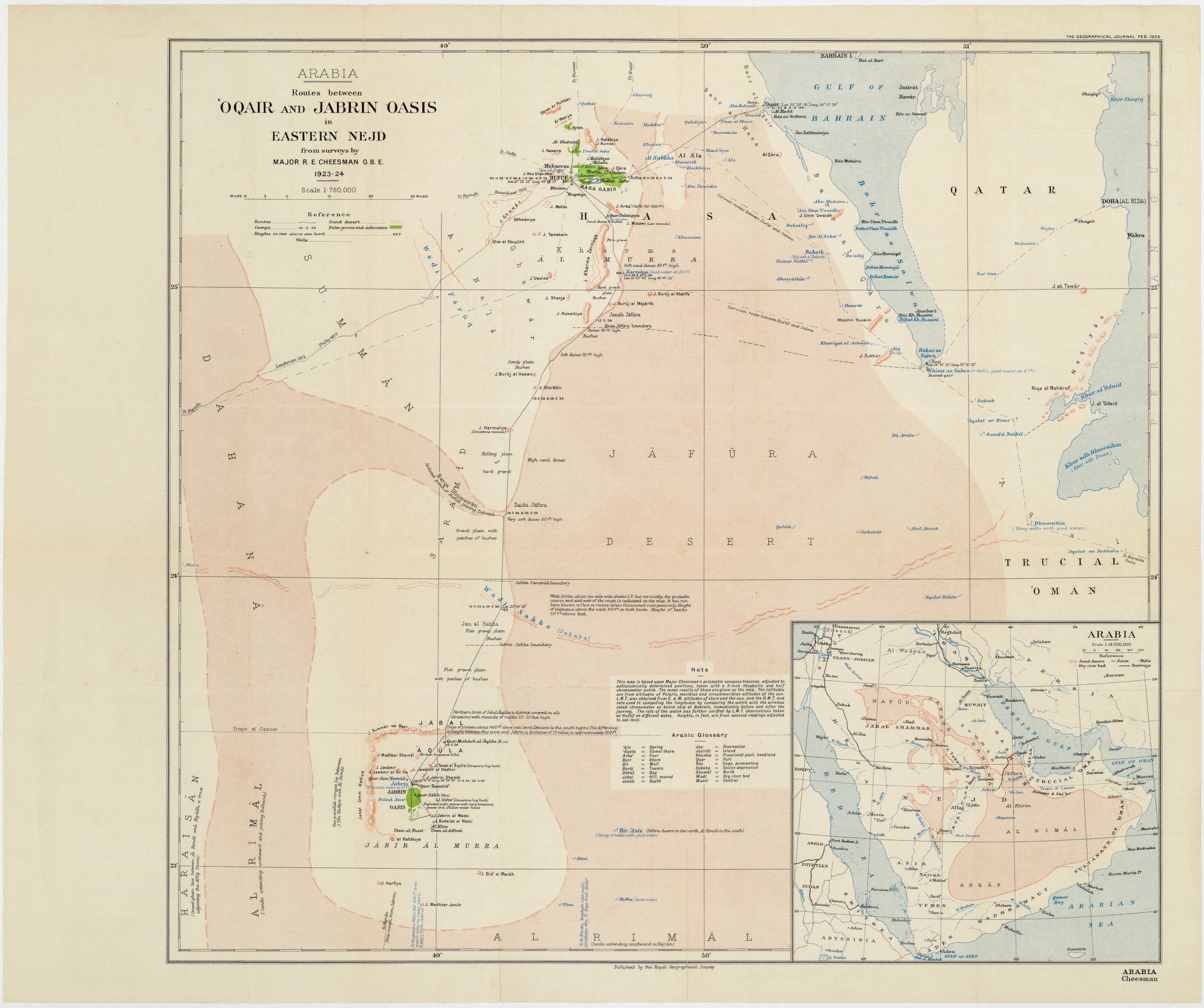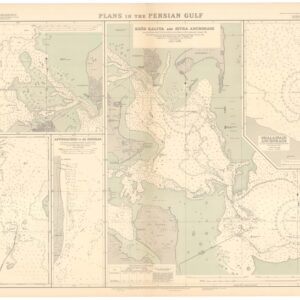19th century map of the Arabian Peninsula with important contemporary political divisions.
Map of Arabia illustrative of W.G. Palgrave’s Journey in 1862-63
$425
1 in stock
Description
This well-designed map of Arabia delineates the basic natural topography of the peninsula, along with important cultural features such as pilgrim routes, important sources of water, and urban centers. It also paints an interesting picture of the political divisions of the peninsula in the mid-19th century, with areas subject to the Ottoman Empire, the Sultan of Shomar, Sultan of the Wahhabee, and the Sultan of Oman.
But the main purpose of the map was to illustrate to travels of William Gifford Palgrave (1826–1888), an English priest, soldier, traveller, and Arabist. He was ordained a priest, and joined the order of the Jesuits and served as a member of the order in India, Rome, and in Syria, where he acquired a colloquial command of Arabic.
He convinced his superiors to support a mission to the interior of Arabia, which at that time was terra incognita to the rest of the world. He also gained the support of the French emperor, Napoleon III, representing to him that better knowledge of Arabia would benefit French imperialistic schemes in Africa and the Middle East.
Palgrave then returned to Syria, where he assumed the identity of a traveling Syrian physician. Stocking his bags with medicines and small trade goods, and accompanied by one servant, he set off for Najd, in north-central Arabia. He traveled as a Christian. The service he would do for the Society of Jesus and the French empire would be as a spy, not a missionary.
Palgrave became friendly with Faisal bin Turki bin Abdullah Al Saud while in Riyadh, Saudi Arabia. Faisal’s son, Abdul Rahman bin Faisal, asked Palgrave to get him strychnine. Palgrave believed that Abdul wanted it to poison his father. Palgrave was accused of espionage and was almost executed for his Christian beliefs.
Engraved by J. Sulzer, Berlin. Printed by F. Barth.
Cartographer(s):
Macmillan was founded in 1843 by Daniel and Alexander Macmillan, two brothers from the Isle of Arran, Scotland.
Condition Description
Soft folds with minor creasing and general wear.
References




